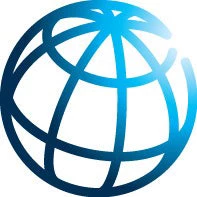Impact of financial crisis on regions – some weather the crisis while others feel its effects
The 2008 financial crisis and ensuing global recession have substantially increased the challenge of meeting the MDG targets. While economic growth is not explicitly targeted in the Millennium Development Goals (MDGs), income per capita measures are highly correlated with widely used indicators of poverty, health, and education.
In contrast to the record growth between 2000–07, the global economy grew only 1.9 percent in 2008 and declined an estimated 2.2 percent in 2009.
East Asia’s exports have been growing less rapidly since 2004 and shrank in 2008 as a result of the global economic crisis. China’s exports dropped immediately but other countries in the region were not affected until the fourth quarter of 2008 and into 2009. Indonesia’s exports, for example, remained strong for much of 2008 supported by strong commodity prices until dramatic declines in oil and other commodities resulted in a significant drop in real exports in the fourth quarter of 2008.

Latin America fared better in the most recent crisis than in previous crises thanks to sound macroeconomic fundamentals. Mexico was hit hardest because of its reliance on the United States for nearly all of its trade. Brazil’s economy contracted by 0.5 percent in 2009 whereas Mexico contracted by 6.5 percent according to preliminary estimates.

At the onset of the financial crisis in 2008, GDP growth in middle income economies in Sub-Saharan Africa slowed, following a pattern seen throughout the developing world. On average, middle-income economies fared worse than less globally integrated low-income economies. In 2009 South Africa, the largest economy in the region is expected to decline by 2.1 percent. Nigeria, the second largest economy, is expected to slow from 6 percent in 2008 to 2.9 percent. Other middle-income countries in Sub-Saharan Africa are expected to have much lower growth in 2009 with the exception of Cameroon, Cote d’Ivoire, and Sudan.

The 2008 financial crisis, which led to a global recession is 2009, was the most severe in 50 years. By the end of 2010, nearly 64 million more people will be living in extreme poverty due to the crisis, possibly resulting in costly and long-lasting effects on human welfare. While some regions have the capacity to sustain this economic downfall, others are not so fortunate. Effects of this crisis transmitted from high-income economies to developing economies as exports, private capital flows, commodity prices, and workers’ remittances declined.
Related links:

Join the Conversation